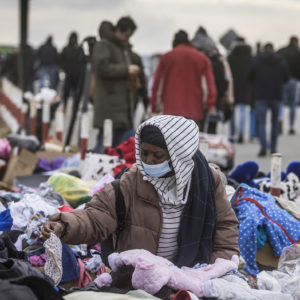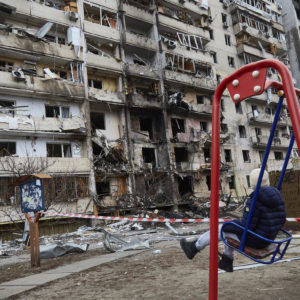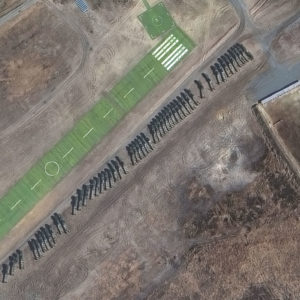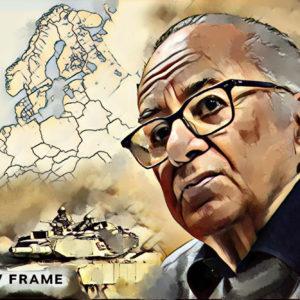SA’s ‘cricket nomad’ refuses to give up on Ukraine
Kobus Olivier’s life as a coach has taken him from Cape Town to Croatia via the war-torn country, where he had been working hard to promote the sport and establish proper structures for it.
Author:
6 May 2022
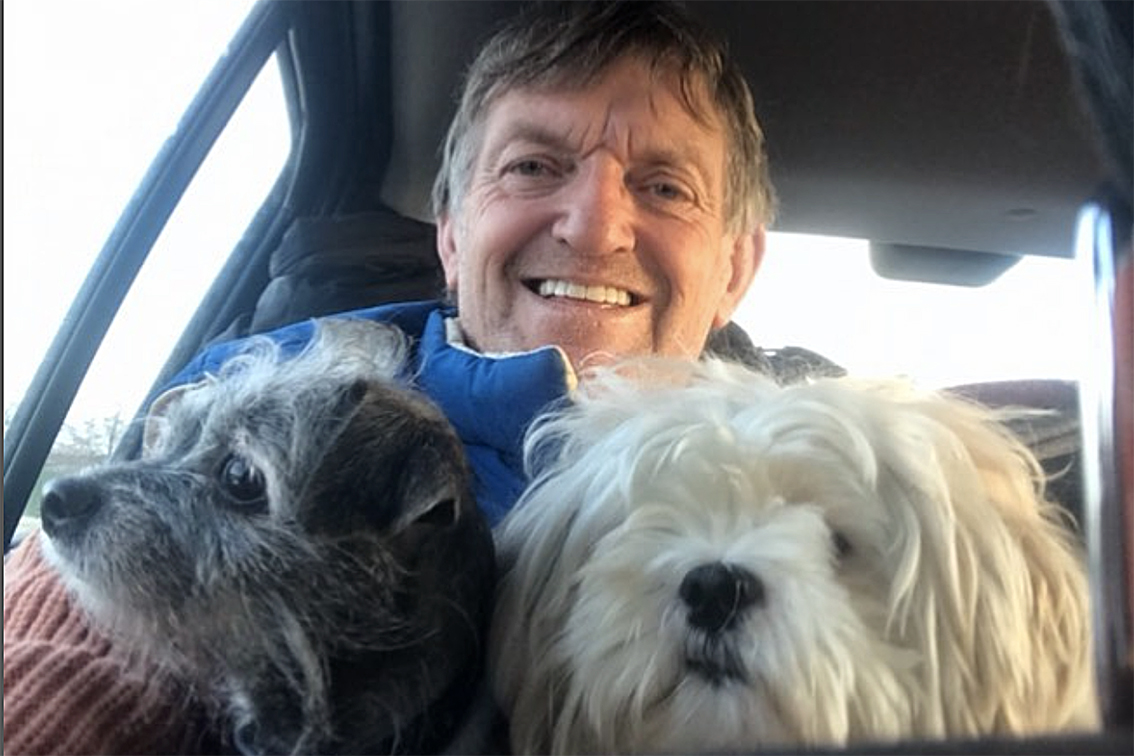
Kobus Olivier knew that the bombs would eventually fall. He had spent 10 anxiety-filled days and sleepless nights anticipating their arrival in his apartment in the quiet suburb of Nyvky, in the western part of Kyiv, Ukraine’s capital city. He envisioned blood and corpses. He foresaw rubble and ruin. And as he peered into the endless void of his imminent future, he fell deeper into the inky blackness of his own dread.
Which is why, in the early hours of Thursday 24 February, while walking his four dogs after another insomniac night, the sound of staccato explosions in the near distance brought an unexpected sense of calm.
“I was terrified,” Olivier says with a beaming smile that he maintains throughout an almost two-hour-long video call. “It was genuinely the most terrifying experience of my life. I was stunned. For a few seconds I couldn’t move.
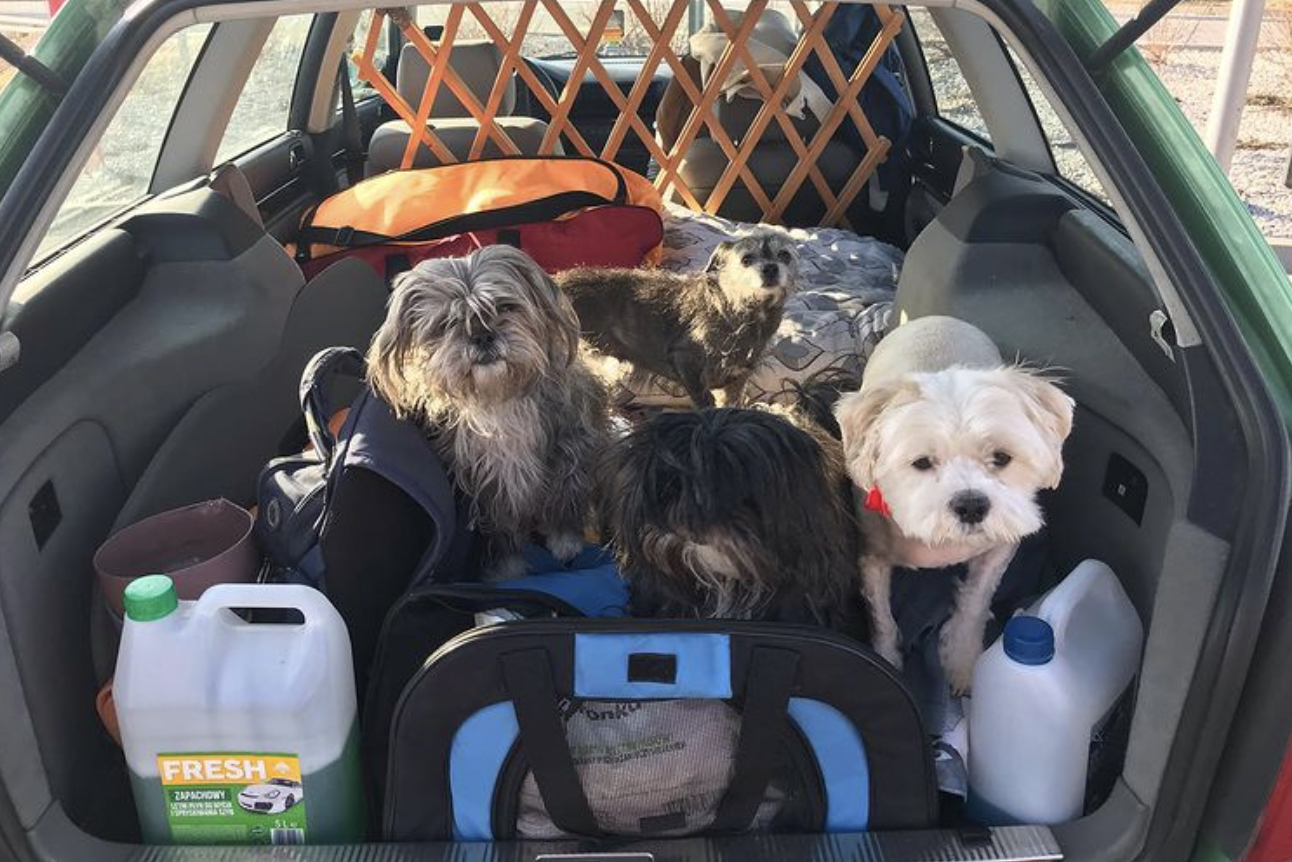
“But it was also a relief. It seems crazy to say, but I was relieved because I now had something I could respond to. The Russians had come just as I knew they would. I didn’t have to wait and think about what would happen, which was the hardest part. Now I didn’t have time to think. I just had to act and was going on adrenalin. That was a relief.”
Along with Tickey, a greying cross-breed that has some Yorkshire terrier in her ancestry, and her three offspring, Ollie, Kaya and Jessie, Olivier turned tail and raced back to his seventh-floor apartment that looked directly into the maw of war.
He threw mattresses over the windows as a shield from shattering glass. And while Russian troops took their first steps in an invasion that would go on for much longer than their president, Vladimir Putin, had hoped, Olivier and his “children”, as he calls his dogs, braced themselves for the coming storm.
A life in the short term
If Olivier had anything resembling a long-term plan for his life, he might tell you that he was never meant to be in Ukraine. A self-proclaimed “cricket nomad”, he has been navigating the world as if caught on a breeze while using the sport he loves to earn an income and facilitate his passion for travel.
His journey began as a player in his native South Africa, where he became a respected opening batter on the club scene in the Western Cape before spending more than a decade playing league cricket in the United Kingdom. By his own admission, he was never talented enough to turn pro.
“My biggest problem was that I got nervous when playing against big names and would spend the whole week worrying before a match,” he says. But he was a natural coach, able to empathise with players who required a softer touch to make the most of their abilities.
Related article:
He cut his teeth at the University of Cape Town and Stellenbosch University, and grew under the wing of former Proteas coach Bob Woolmer at Avendale Cricket Club. He coached in Amsterdam and Glasgow before being appointed chief executive of Cricket Kenya in 2014.
After just a year in East Africa, Olivier moved to Dubai and founded his own academy, inviting household names such as Gary Kirsten and Jonty Rhodes as guest coaches. In 2017, he partnered with Indian spinner Ravichandran Aswhin in setting up the Gen-Next Kings’ Cricket Academy while also serving as director of cricket at one of the city’s top private schools.
Outwardly he was thriving. He received a healthy salary and had an apartment in the affluent Dubai Marina. But four years of endless graft had taken its toll. He needed a break from the heat and went in search of a country with an abundance of snow and an absence of cricket.
A fateful mistake
“Ukraine was actually a mistake,” Olivier says. “I went to Kyiv but for some reason I thought the city was in Slovakia. I only found out when I went to the Slovakian embassy to get my visa. That shows how I never really had a set idea of what I was doing.”
His first trip lasted just five days, but he was instantly hooked. Knee-deep snow, cobblestoned roads, museums, ballet recitals and an old-world European charm formed the exact cocktail Olivier had been searching for. “I remember feeling like I’d found my home,” he says. “I fell in love with the city. The food, the buildings, even the smell. I can’t explain it. Kyiv had me.”
It is at this point in the conversation that Olivier takes a rare contemplative pause. He’s in a coffee shop in Zagreb, Croatia, about 1 500km from the city that stole his heart and Putin has tried to steal with violence. Across the road is a police station where Olivier will apply for a humanitarian visa that will allow him to live and work in the country. “I don’t think I’ll ever go back to Kyiv,” he says mournfully. “Ukraine will never be the same again.”
It wasn’t long after his first visit that he settled in Kyiv, leaving behind his life in Dubai but bringing with him his elderly father and Tickey, who later gave birth to three pups. Olivier reinvented himself as an English teacher at a private school and would host corporate team-building events. It wasn’t long before cricket wormed its way back into his orbit. “I suppose I couldn’t escape it,” he says. “Once cricket is in your blood it stays there.”
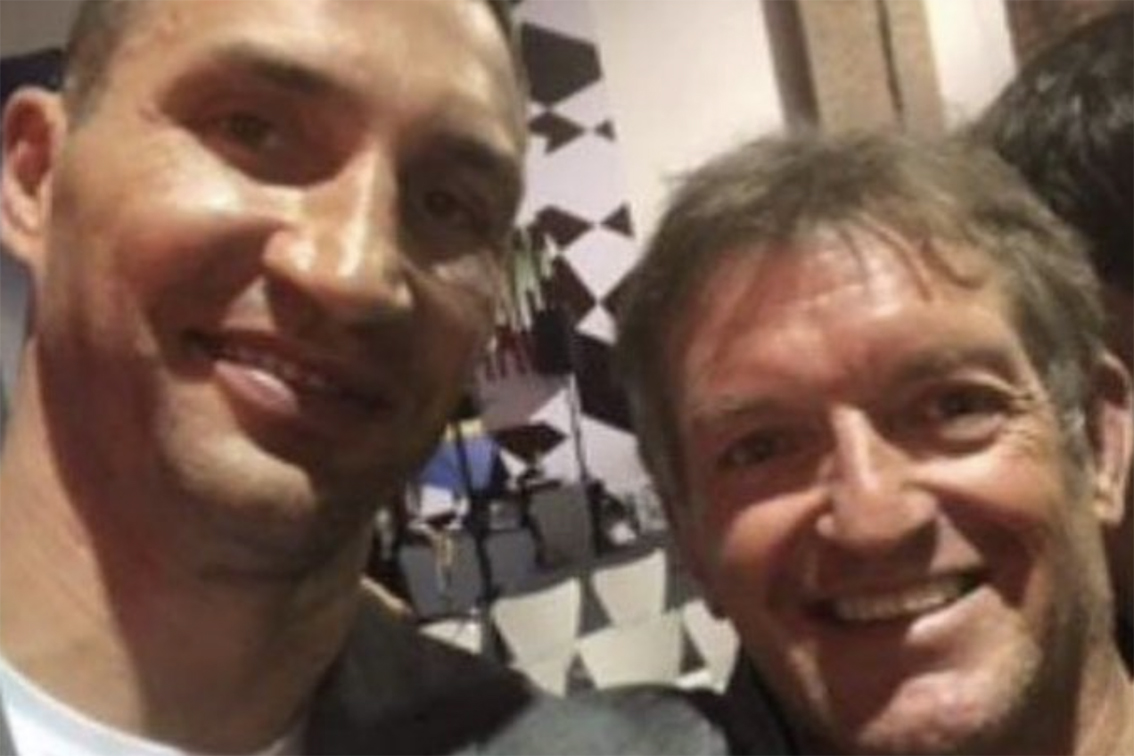
He started with impromptu training sessions at his school with plastic bats and soft balls. Soon he had a programme that was replicated in other schools. Holiday camps were set up. Vitali Klitschko, Kyiv’s mayor and a former world heavyweight boxing champion, offered his support. Not long after, the president of the Ukraine Cricket Federation (UCF), Hardeep Singh, asked if Olivier would like to serve as the organisation’s chief executive in 2020.
The UCF was founded in 2000 and mostly filled with Indian expats, largely pulled from a sizeable student base in the eastern city of Kharkiv. What was lacking was a sustainable grassroots programme, which became Olivier’s primary focus. Through the first two years of the Covid-19 pandemic, and after his father’s death in 2021, Olivier persevered with his mission to secure Ukraine’s status as an associate member of the International Cricket Council (ICC).
“I’ve worked tirelessly on this for three years,” Olivier says. “It was almost an obsession, my purpose. There are leagues, matches, tournaments already. We lacked a proper junior infrastructure. I was the only level three coach in Ukraine and you need some expertise coaching youngsters. We’ve submitted our final documents to become an associate member. We’re still holding thumbs.”
Accepting reality
On 14 September 2020, Ukrainian President Volodymyr Zelenskyy approved his country’s national security strategy, which included a partnership with Nato. This had the potential to bring Russia’s largest western neighbour into the fold of the United States-led intergovernmental military alliance. By November 2021, a reported 92 000 Russian troops were on the Ukraine border and this number increased to almost 200 000 within four months. In February this year, fighting in the separatist regions of eastern Ukraine, which had been going on since 2014, escalated.
Olivier could see the clouds gathering on the horizon. His uncle Gerrit Olivier was South Africa’s first ambassador to Russia in 1992 after the fall of the Soviet Union. Conversations between the two had cemented the idea that war was imminent. So, 10 days before the invasion, Olivier started preparing.
He began to incrementally withdraw cash from his bank to exchange for US dollars. On his way home he would fill bags with groceries, hauling as much tinned food, dried fruit, bottled water and dog food as he could carry.
Related article:
“People thought I’d gone insane,” he says. “Friends of mine started getting angry with me. They said I was warmongering and causing panic. I told them those Russian soldiers weren’t on a holiday. They were there for a purpose. I had some serious arguments and a few people accused me of being a Russian agent or a pro-Kremlin advocate. It got heated and aggressive. They just couldn’t accept what was happening.”
Olivier reports a sense of denialism that overcame his city. He says he was invited to “war parties” at which Ukrainians would drink vodka and mockingly toast Putin’s apparent posturing.
Reality hit like a rocket strike, but Olivier did not think of fleeing just yet. He had enough provisions for himself and his dogs for three months. He’d wait and see.
For three days bombs fell in the distance, illuminating the sky with an abysmal orange hue. Olivier heard machine-gun fire close to his building. “That was fighting between Ukrainians and Russian saboteurs,” he says. “The government gave Ukrainian citizens guns. I saw old ladies arm themselves and make Molotov cocktails.”
Marking time
Within a day of the invasion, Russian troops had seized the Hostomel Airport, northwest of Kyiv. Central Kyiv was hit by artillery two days later. On 1 March almost every suburb surrounding the capital was bombarded. Intelligence reports claimed that an advancing Russian convoy would arrive in Kyiv within 48 hours. When missiles struck Irpin, just a 30-minute drive away, and Russians entered Bucha, where they would later commit verified war crimes, Olivier recognised that time was running out.
On 3 March he travelled 605km west to the city of Ivano-Frankivsk, where he spent five nights in a makeshift refugee camp at a school. After that he moved north and crossed the Polish border, taking residence in a comfortable cottage on a friend’s farm in Glowno, about an hour outside of Warsaw.
Related article:
Olivier admits to the double tug he felt as he fled with his dogs. Ukraine was his adopted home. He had buried his father in its soil. And yet, like the other 5.3 million people who have left Ukraine, his primary concern was self-preservation.
Now living in peace, he contemplated a new life in Poland. Fate would have other ideas as the Polish government, suddenly inundated with more than two million refugees, changed a law and placed a 15-day limit on third-party nationals residing in the country without a residence permit. Olivier had eight days to make another plan before being classified “illegal” and having his dogs taken away from him.
He needed to find a non-Schengen country that was also a member of the European Union. Croatia fit the bill and, through his newfound fame courtesy of his Instagram stories and several articles chronicling his ordeal, he arranged an apartment in Zagreb. He just needed to get there.
The last trek
No airline would accommodate all four dogs at once and he wouldn’t be allowed to return to Poland once he had left. Public transport wasn’t an option either, given that he would be making the trek without help. He had no choice but to drive the 970km through Slovakia and Hungary to sanctuary.
He hastily purchased a lime-green 1996 Audi Avant station wagon and, with his dogs packed snugly in the back, began the 12-hour drive. After a delay at the Hungarian border, which forced him to spend two freezing nights in his car, he made his way to Zagreb on 23 March.
“I still can’t believe where I am,” Olivier says. “I know how lucky I am to be alive and to have my dogs with me and to be safe. I see Ukrainian refugees line the streets, stand in long queues waiting to get papers that will grant them safety. I’ve seen the images on the news and social media. They have nothing. My heart bleeds for these people.”
Related article:
This is why Olivier has dedicated his time to helping those in need. He has partnered with Voices of Children, a charity that provides psychological support to Ukrainian children impacted by the war. He offers free English lessons and plays games with them, anything to distract from the haunting visions they have carried for more than two months. He has also started devising a way to use cricket as a tool for treating post-traumatic trauma.
“I’m not giving up on Ukraine,” Olivier says, still smiling but with a steadfast look in his eye. “We’re still pushing for ICC recognition. That remains the goal.
“I won’t give up hope. Ukrainians will never give up their country. Their sons and fathers and brothers are fighting and dying for their country. Their homes have been destroyed. These are my people and I’ll do whatever I can to help.”

